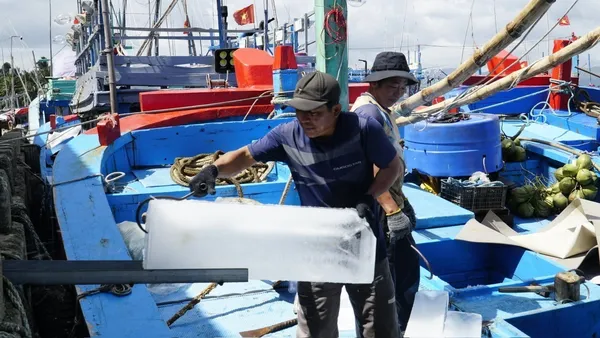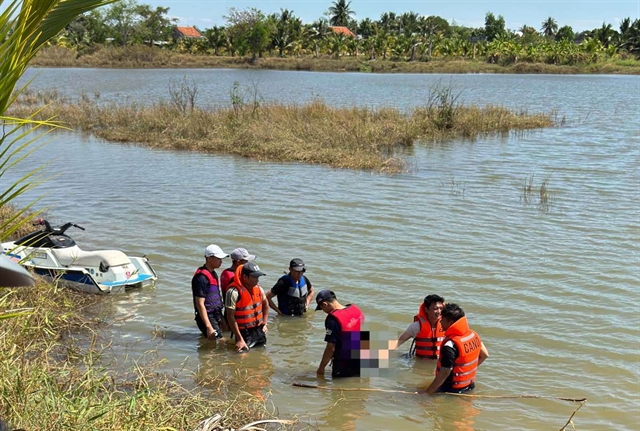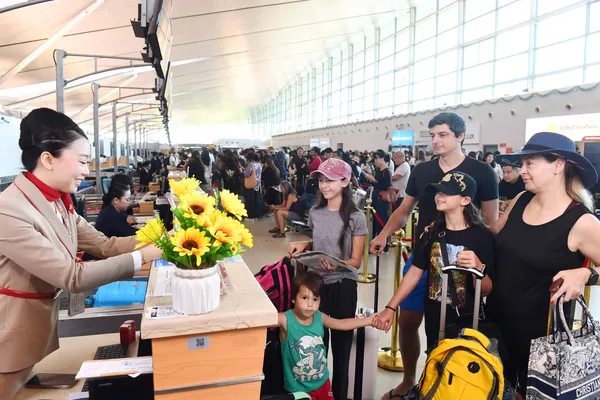 Brandinfo
Brandinfo

Vietnamese textile and garment businesses are making a green push with research and development of eco-friendly materials as they adapt to global fashion trends. Faslink has been a pioneer in supplying green materials to the fashion industry since 2008. The company represented Vietnam’s fashion industry at the APEC Conference in Thailand to speak about sustainable fashion and circular economy. Faslink CEO Trần Hoàng Phú Xuân speaks to Việt Nam News.
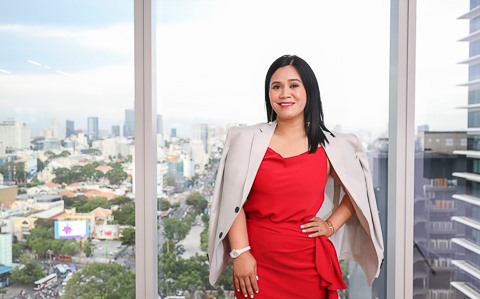
|
What is the most striking aspect of your journey to find green fabrics?
The journey to find new fibers is not so difficult, but commercialising them is not easy.
In visiting leading laboratories around the world, I hadaccess to many different fibers made from corn, coffee, lotus, milk, mint, wormwood, banana, pineapple and other sources. I had to try and identify which yarn was highly feasible, applicable and reasonably priced in making a finished product.
Once the identification was done, we coordinated with textile factories to make the fabric. We had to think carefully, many times, before deciding whether or not we should sell the fabric in the market.
Can you give us some basic information about the research done, technologies used and the kind of fibers the company chooses to commercialise?
Most of our yarns are from two sources: bio and polymer, with two typical product lines – yarn from lotus, coffee grounds and mint and yarn from recycledplastic bottles.
In both cases modern technology and machines costing a lot of money are used. The fibers, despite being processed with different technologies, meet the requirements of sustainability, like coffee grounds being recycled.
Fabrics supplied by Faslink have sustainable features. Even after they have undergone washing, weaving andsewing many times, they still retain their original properties.
Faslink mainly engages in the B2B model, so cost is the first issue to overcome. Our motto is to bring as many quality products to as many users as possible. We have currently developed millions of products.
And if I were to choose one keyword to summarize the entire 12-year journey, the aspect that has helped us overcome challenges, it would perseverance.
Can you highlight some of the successes in this journey?
I think Faslink has created a lot of milestones and we've probably been obsessed with the phrase "first in the world".
Faslink is the first company in the world to commercialise bamboo shirts. Three years ago, Faslink was also the first company in the world to successfully commercialize polo shirts made with coffee fiber. We have supplied about 10 million units to the domestic market.
Where do you see Faslink in the next 5-10 years?
Faslink will be a true hub for customers to buy and research a variety of yarns and fabrics, as well as shirts, jeans, underwear, polo, socks and shoes with raw materials being coffee grounds, lotus fibers, oyster shells, mint, etc.
With very specialised R&D work in many areas, we will devise a comprehensive strategy to connect with a diverse range of factories. To this end we are also focusing on digitisation and optimisation of technology.
Talent development in this industry is very important. Faslink is supporting young people so that they can contribute to the development of the Vietnamese fashion industry in the future.
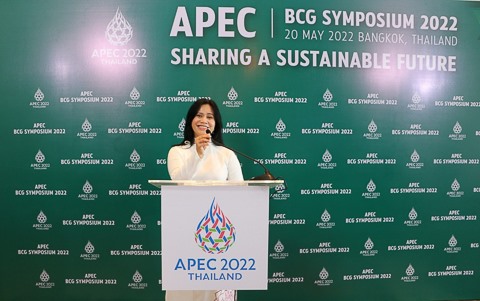
|
Can you say something about Faslink representing Vietnam at the APEC meeting?
The theme of APEC Thailand 2022 is the BCG (Bio - Circular - Green) model. Faslink was probably chosen because we follow the current trend and have pioneered commercialisation of a wide range of sustainable fibers. They want Faslink to talk about this at the APEC forum.
I hope that after this event, we can sign contracts with foreign partners. This need not be multimillion-dollar contracts, but it will mean Vietnamese products have reached the “big sea” and are recognized by international friends.



